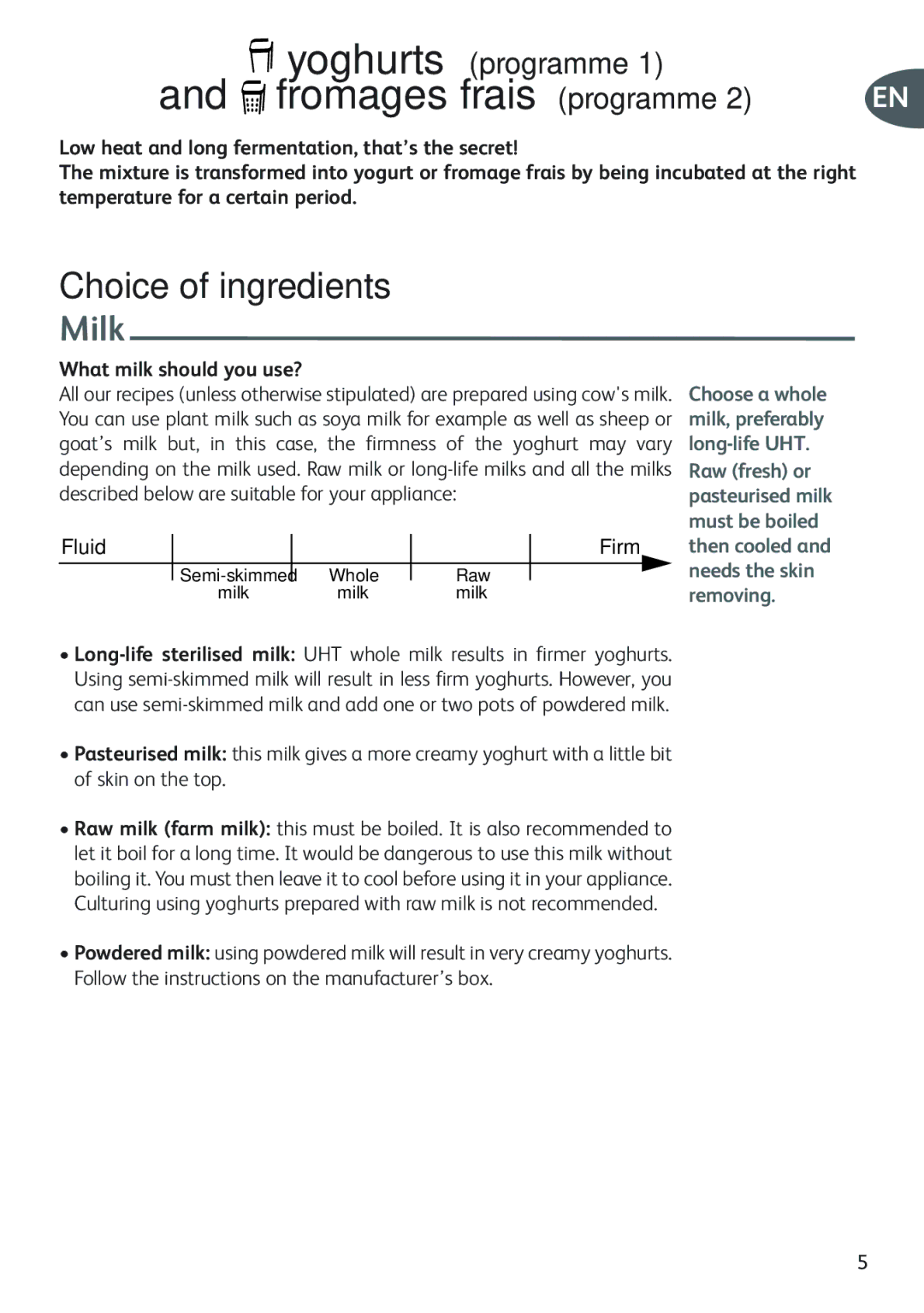
![]() yoghurts (programme 1)
yoghurts (programme 1)
and  fromages frais (programme 2)
fromages frais (programme 2)
Low heat and long fermentation, that’s the secret!
The mixture is transformed into yogurt or fromage frais by being incubated at the right temperature for a certain period.
EN
NL
Choice of ingredients
Milk
What milk should you use?
All our recipes (unless otherwise stipulated) are prepared using cow's milk. You can use plant milk such as soya milk for example as well as sheep or goat’s milk but, in this case, the firmness of the yoghurt may vary depending on the milk used. Raw milk or
Fluid |
|
|
|
|
|
| Firm |
|
|
|
|
|
|
|
|
|
| Whole |
| Raw |
|
| |
|
|
|
| ||||
| milk |
| milk |
| milk | ||
•
•Pasteurised milk: this milk gives a more creamy yoghurt with a little bit of skin on the top.
•Raw milk (farm milk): this must be boiled. It is also recommended to let it boil for a long time. It would be dangerous to use this milk without boiling it. You must then leave it to cool before using it in your appliance. Culturing using yoghurts prepared with raw milk is not recommended.
•Powdered milk: using powdered milk will result in very creamy yoghurts. Follow the instructions on the manufacturer’s box.
Choose a whole milk, preferably
Raw (fresh) or pasteurised milk must be boiled then cooled and needs the skin removing.
5
